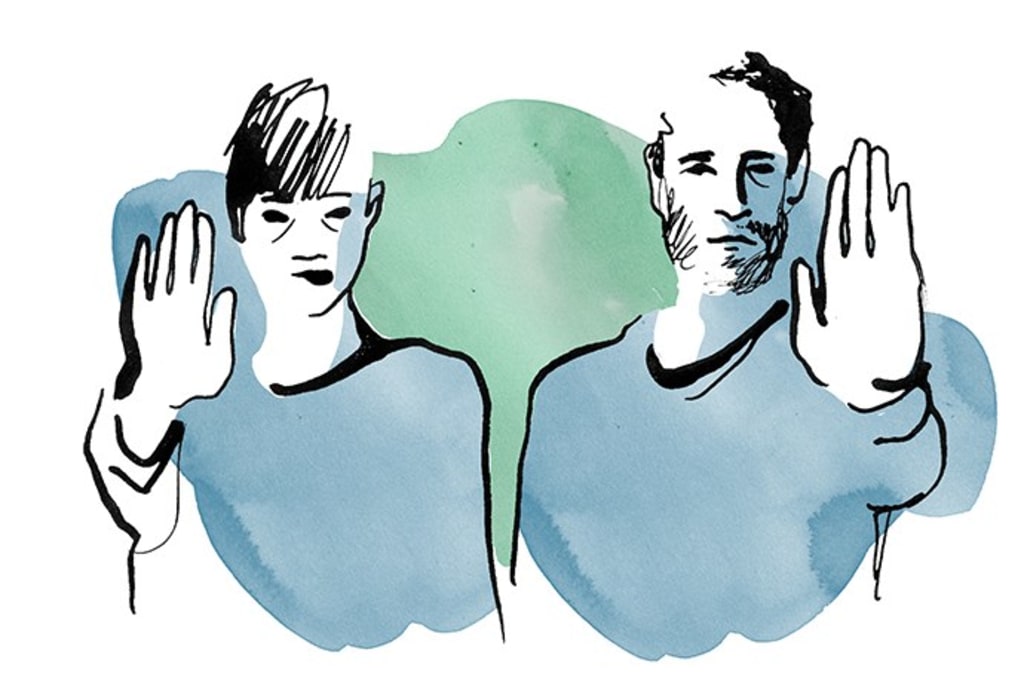What Should We Do to Fight Sexual Violence?
Here are ways YOU can take part in to prevent sexual assault in both men and women.

What is sexual violence?
Sexual violence has been very well common in previous generations and is unfortunately still a saddening issue that we are faced with.
As a definition, sexual violence means that someone forces or manipulates someone else into unwanted sexual activity without their consent. Reasons someone might not consent could be from fear, age, illness, disability, and/or influence of alcohol or other drugs. Anyone can experience sexual violence including children, teens, adults, and elders. Those who sexually abuse can be acquaintances, family members, trusted individuals, or strangers.
Forms of Sexual Violence:
- Rape or sexual assault.
- Child sexual assault and incest.
- Intimate partner sexual assault.
- Unwanted sexual contact/touching.
- Sexual harassment.
- Sexual exploitation.
- Showing one’s genitals or naked body to other(s) without consent.
- Watching someone in a private act without their knowledge or permission.
Thing You Should Know About Sexual Violence and Assault
Are you aware that it is the least reported and convicted violent crime in the United States? Because victims are worried they wouldn't be believed, they would be afraid of the attacker coming back to get them, embarrassment and shame, there's the pressure from others to not tell because it might be considered a "taboo," the distrust of the law enforcement, belief that there is not enough evidence, and unfortunately the desire to protect the attacker even.
And that chances are you most likely know someone who has been sexually assaulted but had been too afraid to speak out? There's also a possibility that the victim is aware of the assaulter.
It affects anyone no matter their gender, race, religion, income, sexual orientation, ethnicity, professions, or abilities. Although, those who deal with social inequality are more prone to the crime.
By age 18, 1 in 4 girls will be sexually assaulted, and 1 in 6 boys will be a victim as well. It is often overlooked that males are also at risk to sexual harassment, and individuals come to a surprise when they are brought awareness to that matter (much like the students in my Psychology class when we were discussing rape), which gives more of a reason to speak out against sexual violence. And at some point in their lives, 1 in 6 women and 1 in 33 men will experience an attempted rape.
Victims are NEVER at fault for the sexual assault, and it saddens me that it is a crime in which the victim is blamed. It doesn't matter what anyone is wearing, no one asks to be raped. Assaulters usually use force, threat or injury, but the absence of injury still does not mean that consent was given.
Sexual assault IS preventable.
Here's how:
- Model supportive relationships and behaviors with your friends and families
- Stand up for victims and believe them
- Speak up when you hear harmful comments or witness violent acts
- Create policies at your workplace or school system to stop sexual violence and help victims
- Coordinate a community event to raise awareness about sexual violence or talk with community members about ways they can get involved
- Talk with your legislators and ask them to support prevention and victim services
Additional Ways to Prevent Sexual Violence
- Know that silence does not equal consent.
- Don’t blame rape victims for the violence perpetrated against them.
- Take responsibility for your own sexuality; don’t let it be defined by your partner, the media, or anyone else.
- Do not use alcohol and/or drugs to get someone to have sex with you.
- Do not participate in sexist behavior by objectifying or stereotyping women.
- Teach everyone you know about the myths and realities of sexual violence.
- Interrupt rape jokes.
- Challenge images of violence against women in advertising, pornography, professional wrestling, and other forms of media.
- Support women and men working to end sexual violence by volunteering your time, donating money, and/or lobbying legislators.
- Recognize that sexual violence will not end until men/women become part of the solution.
In Conclusion
We must let people know that it is okay to speak out. That speaking out is completely fine and that they should not be afraid to. People should acknowledge that sexual abuse is a matter that should not be kept silent, and if one was to speak out their experience they would not be considered weak in any way. And that if a man speaks up about his experience it doesn't make him any less manly, despite the roles society has placed that men should be strong and able to defend themselves. And that if a woman speaks up, she will not be considered a "slut" and that she was asking for it, because I am a hundred percent sure she wasn't or else it wouldn't be considered sexual violence.
It is important that we teach upcoming generations and even the current generation on how to prevent any form of non-consensual acts and even more important to let victims know that they will be heard and believed.
Help is available.
In crisis situations, contact RAINN at 1-800-656-4673






Comments
There are no comments for this story
Be the first to respond and start the conversation.